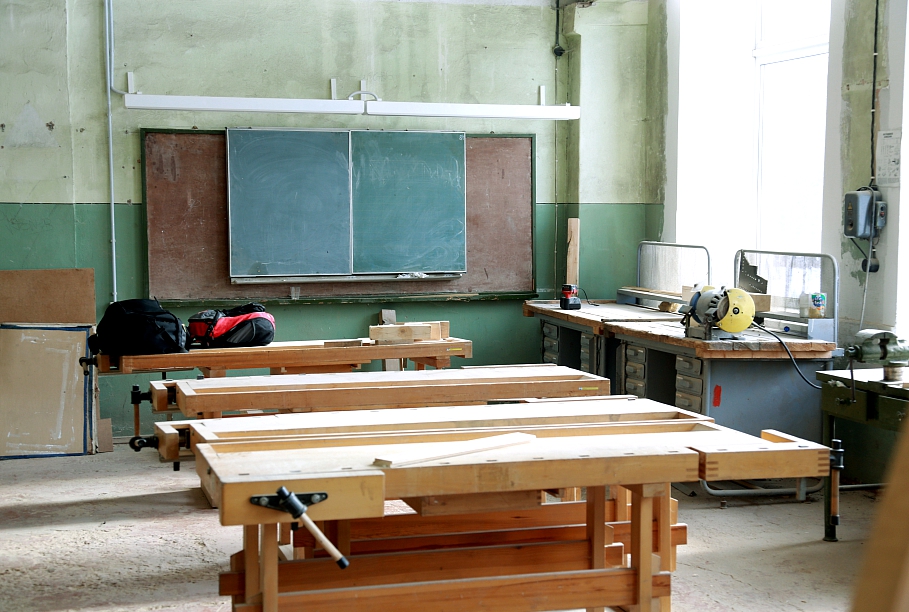In the European Union, the decline in popularity of vocational education among young people is causing concern
IN SHORT:
Many young people prefer university education.
Vocational education is still associated by many with hard and “dirty” work.
The lack of employees is especially felt in the information technology sector.
It is necessary to strengthen cooperation between schools and companies.
The shortage of employees strengthens the position of vocational school students in job interviews.
For reasons of prestige or reputation, many young people prefer to obtain a university degree rather than opting for more technical vocational training. Young people are often encouraged to do so by their families. However, there is a severe shortage of workers in some occupations.
According to the European Center for the Development of Vocational Education and Training, skills shortages are a particular concern, especially when unemployment is high. This situation was looked at by the journalists of the “Euranet plus” broadcasting network, which gathered opinions in several European countries.
There is a lack of IT specialists
According to the European Center for the Development of Vocational Education, a particular lack of employees is felt in the information technology (IT) sector, as the skills of these professionals are needed in almost every sector of the economy. The center states that there is a lack of information and communication technology specialists in all member states, except Finland. In addition, anything related to cyber security or people who can handle future technologies are increasingly in demand. And industries related to artificial intelligence will continue to grow in the coming decades.
“In the past, many professions have been devalued to some degree because many jobs in vocational education were seen as dirty, difficult and so on.
However, with the development of new technologies, this is no longer always the case,” explained Aleksandrs Sladojevičs, head of the International Cooperation Center of the Slovenian Institute of Vocational Education, explaining the decline in the popularity of vocational education.
Invest in people
As a result, many professions cannot find a suitable professional profile in the labor market. This issue is becoming increasingly relevant in the European Union, as evidenced by the fact that this year is the “European Year of Skills”.
“Three quarters of companies across Europe complain about a lack of qualified employees,” said Birgitta Schmeitzner, press secretary of the European Commission in Berlin.
“As we all know, the world of our work is changing. On the one hand, we have the green change and then the digital change, and that also means that the jobs associated with them are different from what they were 5, 7 or 10 years ago, and for politics, of course, that means that we have to invest in people, in what they know, to encourage them to want to learn something. That they also want to continue their education. And for that, the European Year of Skills is kind of an encouragement, because it’s clear that it cannot be solved only in Brussels.”
Cooperation between schools and companies should be improved
As the young entrepreneur and designer Rūta Vielaviče admitted to journalists in Lithuania, she opted for professional training because she saw a greater practical benefit in supplementing professional skills than in obtaining a bachelor’s degree. Studying at a university would also make you significantly adjust your work and daily rhythm.
Former Portuguese Minister of Education and Science, Nuno Crato, explains that better cooperation between schools and companies on needs and skills would allow professional studies to offer content more relevant to the needs of business sectors:
“We have a problem, which is the tendency of schools to offer vocational programs that do not meet the needs of the region. To solve this problem, I think we need cooperation between schools and companies. Companies should voluntarily provide resources, such as technicians and facilities, to promote vocational training.”
Stronger positions in job interviews
Finally, given that there is a shortage of labor in many sectors that train young people in vocational education institutions, job seekers are in a stronger position in job interviews.
“Today there is a shortage in our sector and especially in electromechanical engineering. So it is no longer us who are looking for work, but the companies that come here are looking for us,” the young electromechanic Mikey de Weider emphasized to Belgian journalists.
He also explained that the job interview is, of course, still an integral part of getting a job. You still have to prove your worth to an employer. However, there are much fewer restrictions, as the employee has a stronger position in salary negotiations and it is possible to set other conditions, as it is clear that the employer needs you.
CONTEXT:
In order to ensure the matching of skills with the demand of the labor market, to harmonize the set of people’s wishes and skills with opportunities in the labor market, as well as to promote competitiveness, participation and talent development, the European Commission has declared 2023 as the “European Year of Skills”. Within its framework, various thematic events and activities will take place in Latvia.
Funding for upskilling or new acquisition is available from various EU programs and funding instruments, such as the European Social Fund, the Recovery and Resilience Mechanism, Erasmus+ and Horizon Europe.
Typo?
Highlight the text and press Ctrl+Enter to send the corrected text fragment to the editor!
Highlight the text and press the Report an error button to send the corrected text fragment to the editor!
Report a bug
2023-07-20 04:58:35
#European #Union #decline #popularity #vocational #education #among #young #people #causing #concern


